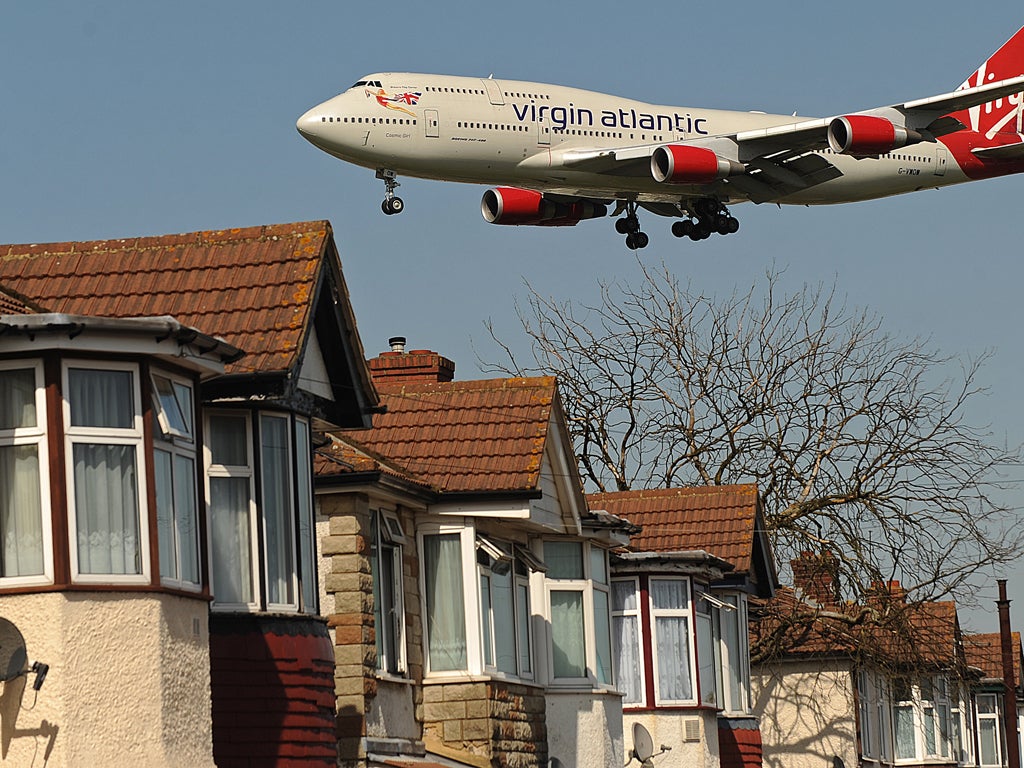Living under a flight path may raise risk of high blood pressure and stroke, study finds
Each additional 10 decibels of night-time aircraft noise linked to 69 per cent increased risk of hypertension

Your support helps us to tell the story
From reproductive rights to climate change to Big Tech, The Independent is on the ground when the story is developing. Whether it's investigating the financials of Elon Musk's pro-Trump PAC or producing our latest documentary, 'The A Word', which shines a light on the American women fighting for reproductive rights, we know how important it is to parse out the facts from the messaging.
At such a critical moment in US history, we need reporters on the ground. Your donation allows us to keep sending journalists to speak to both sides of the story.
The Independent is trusted by Americans across the entire political spectrum. And unlike many other quality news outlets, we choose not to lock Americans out of our reporting and analysis with paywalls. We believe quality journalism should be available to everyone, paid for by those who can afford it.
Your support makes all the difference.Exposure to loud noise from living under a flight path over a long period of time may increase the risk of developing high blood pressure or having a stroke, a new study suggests.
Researchers examined data from 420 people living near busy Athens International Airport in Greece and found living with high noise levels from aircraft, especially at night, was associated with high blood pressure.
Every additional 10 decibels of night-time aircraft noise appeared to result in a 69 per cent increased risk of high blood pressure, also known as hypertension.
The study, published in Occupational & Environmental Medicine, also found greater levels of noise pollution were linked to a heightened risk of stroke.
However, the researchers said this link was not strong enough to be statistically significant, possibly because of the small number of cases involved.
More than one in four adults in the UK have high blood pressure, which can lead to extra strain on the heart and other organs, and can increase the risk of developing heart disease and other conditions, according to the NHS.
One set of data in the study was taken from research into the link between exposure to noise near airports and high blood pressure carried out in 2004-6.
This was compared to similar information gathered from the participants on their health and environmental noise levels in 2013.
The researchers at the University of Athens found that around half the participants (just under 45 per pent) were exposed to more than 55 decibels of daytime aircraft noise, while around one in four (just over 27 per cent ) were exposed to more than 45 decibels of night-time aircraft noise.
Only around one in 10 (11 per cent) were exposed to significant road traffic noise of more than 55 decibels.
Between 2004-6 and 2013, 71 people were newly diagnosed with high blood pressure and 44 were diagnosed with heart flutter (cardiac arrhythmia), while a further 18 had a heart attack, the researchers found.
Join our commenting forum
Join thought-provoking conversations, follow other Independent readers and see their replies
Comments